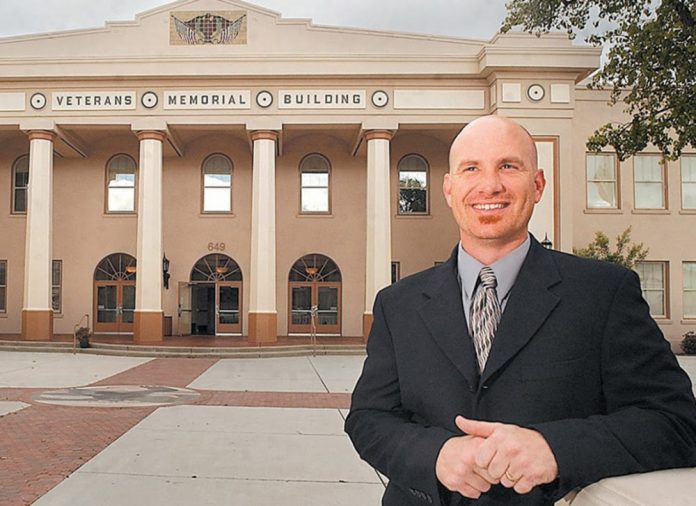In the view of City Manager Bill Avera, the City of Hollister is “in good shape.”
Avera reported on economic condition of the city at a recent San Benito County Chamber of Commerce lunch event billed as a “state of the city” report.
Avera said he would not have characterized his report as an actual “State of the City” address, but stated that Hollister is currently doing well.
“The last four to five years have been good to us,” he said. “We have challenges ahead of us of course, but where we have been, I think we are in good shape.”
Recent economic development efforts like the Teknova business expansion and the grand opening of the Fairfield Inn and Suites by Marriott show that Hollister is serious about bringing business to town, he said. He added that housing growth is also healthy.
“Dealing with the facts, and not public perception, is that we are seeing growth,” Avera said. “Growth for a community is good and it is modest. I do not believe it is necessarily out of control. The projects we are seeing being built have been in the planning stages for several years. They do not just pop up overnight. That is not how development works.”
In the early 2000s, the Regional Water Resources Control Board enacted a building moratorium in Hollister after 15 million gallons of wastewater spilled into the San Benito River bed. The moratorium halted housing, commercial development, and job growth in the region for over half a decade.
Then a few years later, the Great Recession hit in 2008 and kept the economy stunted.
Since the moratorium was lifted in 2008, Avera reported that 560 homes have been built, including 143 homes built in 2016. In 2017, 309 occupied units were constructed.
Later this month, the Hollister City Council will decide on a proposed growth management program that would cap the construction of single-family residential housing to 244 units a year. Affordable housing, senior housing, secondary or accessory units, special needs housing, and rentals would all be exempt from the cap.
The cap is an attempt to control local housing development in the midst of a statewide housing crisis.
“We want to make sure we grow at a healthy rate,” Avera said. “I think what the state is mostly concerned about is making sure the affordable stuff is met, the higher density stuff is met. By not having that stuff count against the cap, I think we are good.”
Cannabis also came up in conversation. The city recently approved allowing recreational, or adult-use, cannabis businesses to operate in town, excluding dispensaries.
“What we have right now are smaller facilities just beginning operations,” Avera said. “A lot of the focus on the law enforcement side is to ensure the only way a legal cannabis operation is going to remain in operation and successful is if we cut down on what I would call the illicit sales of cannabis. That is what our focus needs to continue to be on.”










